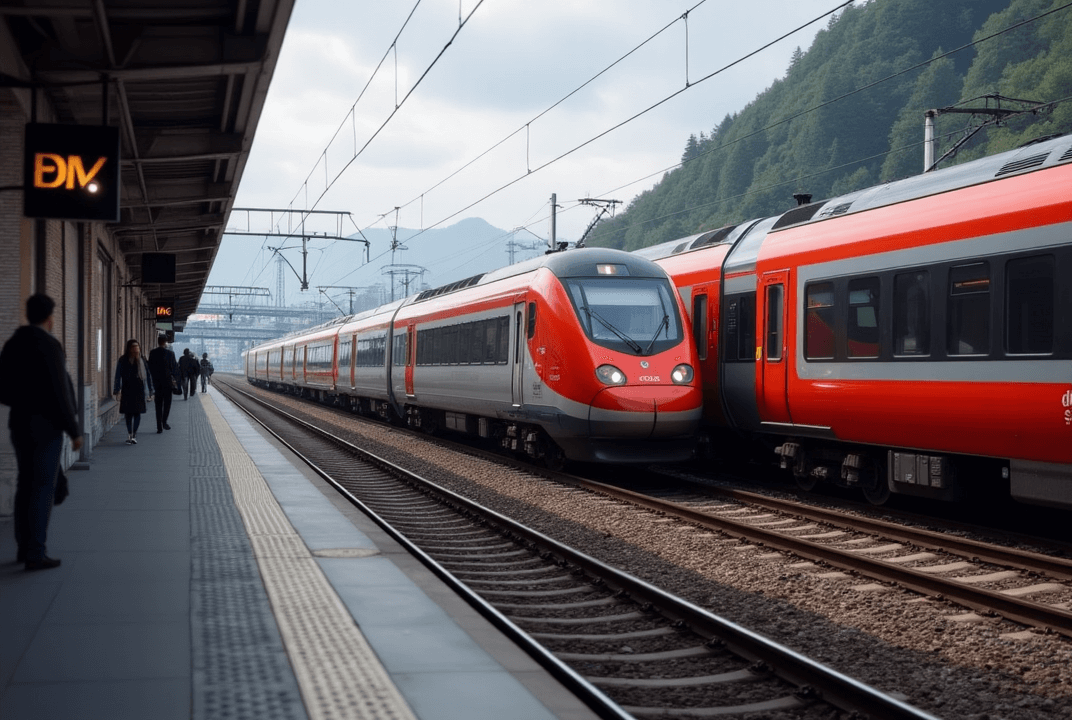High-Speed Rail Link from London to Geneva by 2026

The prospect of a direct high-speed rail connection between London St Pancras and Geneva is becoming more realistic, with recent announcements from the UK Department for Transport (DfT) and Swiss officials highlighting progress in overcoming key regulatory and logistical obstacles. This potential route, which could reduce travel time from around seven and a half hours to approximately five, promises a significant impact on travel between the UK and Switzerland.
For travelers, the new service offers an appealing alternative to air travel, combining speed, comfort, and environmental benefits. The current rail journey between London and Geneva involves changing trains and stations in Paris, adding time and complexity. A direct service would streamline travel, making rail a more competitive option for international visitors, business travelers, and tourists. Geneva’s city transport network further enhances the travel experience by allowing easy exploration without extra costs.
The agreement to advance the direct rail service was emphasized during talks between the UK’s Transport Secretary Heidi Alexander and Swiss Transport Minister Albert Rosti at London’s St Pancras station. Alexander noted the signing as an important milestone but acknowledged that numerous technical and regulatory details must be addressed before the service can start. She indicated that a launch within the next 12 months is unlikely but expressed optimism about the project’s future. Rosti also suggested that while progress might be slower than desired, the chances of launching services within five to ten years are strong. He pointed out that the direct rail service would compete strongly with air travel, considering that while flights from Heathrow to Geneva take about one hour and forty minutes, the total journey time including airport procedures often makes rail travel quicker.
A critical delay factor is regulatory approval related to the Channel Tunnel. Trains passing through the tunnel must meet strict safety regulations, including those concerning the transport of dangerous goods and emergency response capabilities. These requirements necessitate thorough vetting and certification before new trains can operate on this route.
The trains proposed for this route include Alstom’s Avelia Horizon double-decker high-speed model, offering high seating capacity and low cost per seat. This technology can accommodate more passengers efficiently, meeting growing demand for cross-Channel rail travel. The design allows speeds of up to 350 km/h, faster than existing Eurostar services, which operate at a maximum of 300 km/h. This speed advantage will reduce travel times and improve the competitiveness of rail travel compared to flying.
The introduction of direct, faster trains between London and Geneva is expected to lead to cost savings for travelers. Industry experts anticipate fares could be reduced by approximately 30%, making train travel more affordable. For example, a standard one-way Eurostar ticket to popular European cities currently starts around £39. With a 30% discount, this could fall to roughly £27. For premium fares like Eurostar Plus, which start at about £70, the discount would bring prices down to approximately £49. Lower fares combined with faster journeys and higher capacity mean that direct trains to Geneva and other European cities could attract more tourists, business travelers, and students, stimulating increased travel and economic activity.
Eurostar’s ambitions extend beyond Geneva, with plans to develop direct rail services to other major European destinations. Market research has identified strong customer demand for direct connections from London to German cities such as Cologne and Frankfurt, Swiss cities including Geneva and Zurich, and southern French cities like Marseille and Bordeaux. In addition to Eurostar, Italy’s Ferrovie dello Stato Italiane plans to launch a new high-speed service between London and Paris by 2029, with potential extensions to cities such as Marseille, Lyon, and Milan. This increased competition is expected to drive innovation and lower costs in cross-border rail travel.
Eurostar currently holds a monopoly on passenger rail traffic through the Channel Tunnel, but this dominance is facing challenges. Virgin Group, led by Sir Richard Branson, is preparing to enter the market, having received regulatory approval to share the Eurostar maintenance depot in Temple Mills, London. The entrance of Virgin and other new competitors promises to increase competition, which experts say will benefit consumers through lower fares and improved services. Competition among operators is expected to lead to better value and increased choice for travelers on popular cross-Channel routes. With more players vying for passengers, airlines might also feel pressure to reconsider their pricing and services on short-haul flights in Europe.
This development in high-speed rail services reflects a broader shift in global travel preferences. As travelers seek more sustainable, convenient, and enjoyable options, high-speed rail is emerging as a favored mode of transportation for regional travel. By connecting major cities like London, Geneva, Paris, and Amsterdam directly, rail travel can compete effectively with air travel, offering a greener alternative that also eliminates the hassles of airport security and lengthy check-in times. The introduction of double-decker high-speed trains and new operators in the Channel Tunnel market also signals the increasing integration of European transport networks. For travelers, this means greater flexibility, improved connectivity, and the opportunity to explore multiple countries efficiently.
The agreement between the UK and Switzerland to facilitate direct high-speed rail travel between London and Geneva marks a significant evolution in the European travel industry. With faster, higher-capacity trains and competitive pricing on the horizon, the new service will appeal to tourists, business travelers, and commuters alike. As Eurostar and its potential competitors expand their offerings and networks, passengers can look forward to more choice and better value in cross-border travel. The changes also reinforce the importance of rail as a sustainable and efficient travel mode in Europe’s future transportation landscape. By fostering connectivity between major cities across multiple countries, this development will reshape travel patterns, stimulate economic activity, and support environmental goals, ultimately benefiting travelers and the global tourism industry.










